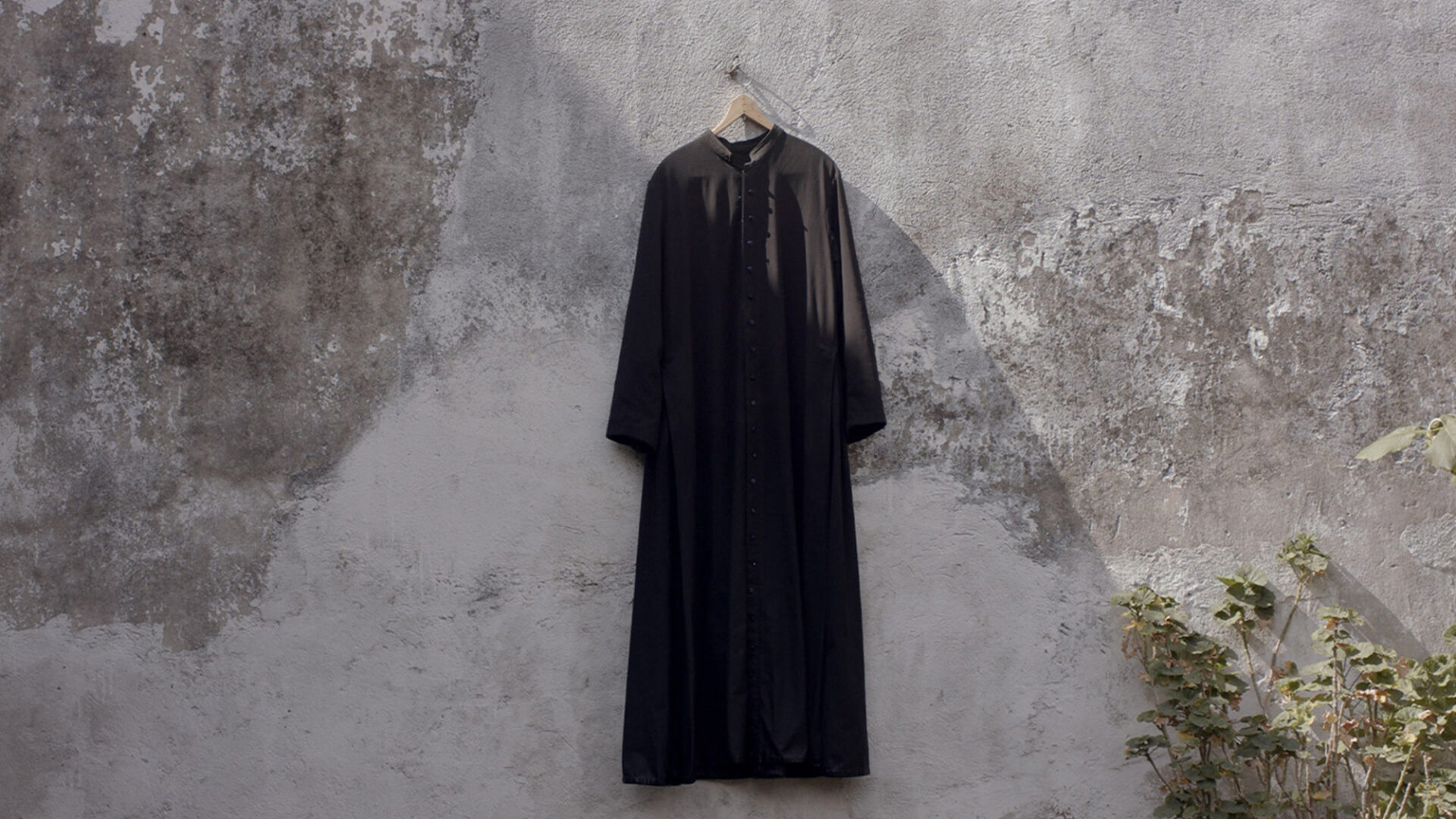
We meet Father Pablo (Rafael Martínez Sánchez) in the middle of a D&D session with some fellow clergy. The group has arrived at a mysterious lake and all signs lead to the obvious next step of jumping into the lake, when the initiative arrives to Father Pablo who decides to use his turn to set up camp, much to the disappointment of his fellow adventurers. The DM describes a lousy, sleepless night and moves play onto the next guy who steps into the lake and continues the curious journey. To call Father Pablo a buzzkill would be putting it lightly. It’s a testament to the skill of first-time director José Luis Isoard Arrubarrena that we grow to love Pablo in spite of his personal shortcomings.
A novice, laptop priest who is essentially a white-collared accountant for the Catholic church, Father Pablo is deeply attached to the rules and regulations of the word of God. He spends much of his time isolated from the rest of the world and seems to be stuck in a different era, constantly at odds with the modern world outside the church walls. When his sister comes to visit him, in his small, plain room and tells him that he needs to visit his father, because he will be dying soon, he begrudgingly decides to visit the family ranch where his dying poet father Manolo (Juan Ignacio Aranda) resides.
Manolo is an angry man. Sick and bloated from a poet’s life of drinking, he’s confined to a bed, completely paralyzed. Propped up on one side, as his long-time nurse Esmerelda removes his sweater, he tells his son from his death bed, “This is my greatest existential defeat. That you became a priest.” It’s a moment that is both funny and painfully cruel, and serves to inform the distance and lack of understanding that defines this father-son relationship.
On the outside Pablo seems relatively stable and sure of himself, but as we spend more time with him we start to see the cracks in his façade. It becomes evident that his dedication to the laws of the bible come from a place of desperation and fear, and the isolation he feels is partly his own creation. He soon learns from Esmerelda that his father is intending to end his own life with her help, but they first need Pablo to hear her confession and grant her forgiveness before she is willing to go through with it. This causes an unresolvable conflict with Pablo, who could not fathom such an act. He contacts his superior via Zoom to ask for advice. Pablo ends up hiding in his room, avoiding his father as much as possible. Some cousins arrive at the ranch to visit, party and say goodbye to their uncle. Pablo’s total lack of charisma denies any potential human connections and an awkward social scene, one night, leads to Pablo betraying himself and taking out his guilt on the other guests.
Director Arrubarrena shows terrific restraint in his debut film. Long, still shots, sometimes in the almost pitch dark allow his actors to move at their own pace and fully inhabit the setting. It’s hard to say why Pablo is the way he is, but in spite of his hardheaded temperament and lack of people skills, we grow to feel his pain and understand his fears. Father Pablo hit home for me in many ways.
This is a slow moving, but thoughtful and profound film. There are no emotional crescendos or heart wrenching confessionals. There is a confession scene, to be fair. It takes place on a webcam and the priest’s reply is an important piece of advice that should ring true to anyone who has been in Pablo’s position. Pablo follows through with the advice, speaking to his father, his face bathed in the light of his iPhone, his father listens silently. The final moments of the film are hidden from Pablo, but the audience is provided that moment of forgiveness and release that he is unable to afford himself.